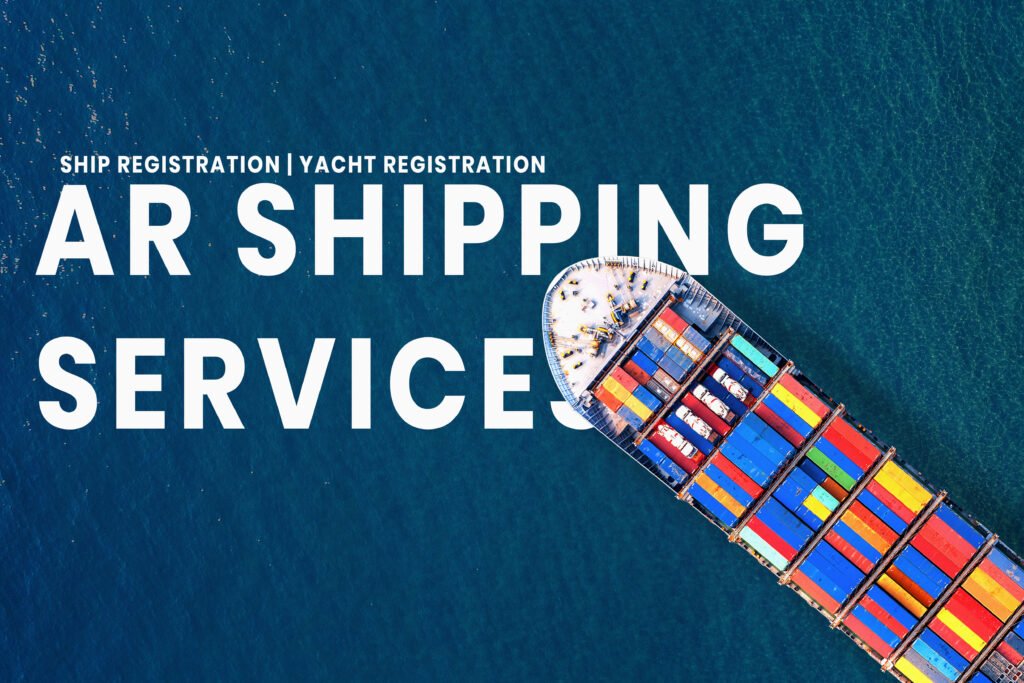The global maritime industry, responsible for transporting over 80% of world trade, stands at a pivotal juncture. Driven by escalating environmental concerns and stringent international regulations, a profound shift towards green shipping technologies is underway. This isn’t merely an operational adjustment; it’s a fundamental transformation that impacts everything from ship design and propulsion to maritime compliance and the very process of ship registration. For a global maritime service provider like A.R. Shipping Services F.Z.C., serving clients across the UAE, Saudi Arabia, Oman, and various flag states including Liberia, Panama, and Comoros, understanding and facilitating this green transition is paramount.
Navigating New Waves: The Drive Towards Green Shipping 🌍
The push for a greener maritime sector stems from a critical need to reduce the industry’s environmental footprint. Shipping contributes significantly to global greenhouse gas (GHG) emissions, air pollution (sulfur oxides, nitrogen oxides), and marine pollution. International bodies like the International Maritime Organization (IMO) are at the forefront, implementing ambitious targets and regulations such as the IMO 2020 sulfur cap, the Energy Efficiency Existing Ship Index (EEXI), and the Carbon Intensity Indicator (CII). These mandates compel shipowners to adopt more sustainable practices and technologies.
This regulatory pressure, coupled with increasing environmental awareness from consumers and investors, has spurred innovation in several key areas of green maritime technology:
- Alternative Fuels: The industry is actively exploring and investing in fuels beyond traditional heavy fuel oil. Liquefied Natural Gas (LNG) is a current frontrunner, significantly reducing SOx, NOx, and particulate matter, and offering lower CO2 emissions. Beyond LNG, the future lies in zero-carbon fuels like ammonia, hydrogen, and methanol, as well as biofuels. Each presents unique challenges in terms of production, bunkering infrastructure, and onboard storage, but their adoption is critical for long-term decarbonization.
- Energy Efficiency Solutions: Technologies aimed at optimizing energy use onboard existing and new vessels are gaining traction. This includes hull air lubrication systems (reducing friction), wind-assisted propulsion (e.g., rotor sails, kites), advanced propeller designs, waste heat recovery systems, and sophisticated route optimization software that factors in weather and ocean currents to minimize fuel consumption.
- Carbon Capture and Storage (CCS): While still nascent for maritime applications, onboard CCS technologies are being researched as a potential solution for capturing CO2 emissions directly from ship exhausts, effectively preventing them from entering the atmosphere.
- Shore Power (Cold Ironing): At ports, ships are increasingly mandated or incentivized to connect to shore-side electricity grids when docked. This eliminates the need for ships to run their auxiliary engines, drastically reducing emissions in port areas, which are often densely populated.
Technology’s Ripple Effect on Maritime Compliance and Registration ⚙️
The integration of these green technologies has profound implications for the regulatory landscape and the essential services maritime companies provide, including ship registration and statutory certifications.
- Evolving Classification and Certification Requirements: As ships adopt new fuels and energy-saving devices, classification societies (like ABS, DNV, LR, etc.) must develop new rules and standards for their design, construction, and operation. This leads to new certifications verifying compliance with environmental performance criteria (e.g., “Ready for Ammonia” notations, EEXI/CII certificates). Maritime service providers in the UAE must guide owners through these complex new certification pathways to ensure continuous compliance.
- Impact on Ship Registration Documentation: The chosen flag state (e.g., Liberia, Panama, Marshall Islands, Belize) needs to be informed and approve the use of novel technologies and fuels. Registration documentation must reflect these specifics, and processes for obtaining necessary waivers or approvals for non-conventional systems become critical. For A.R. Shipping Services F.Z.C., this means providing meticulous support to ensure all technical and operational aspects related to green technologies are correctly documented and approved by the chosen registry.
- Data Reporting and Verification: Regulations like CII require ships to collect and report vast amounts of operational data related to their carbon intensity. This necessitates robust digital data management systems onboard and ashore. Service providers need to assist owners in setting up these systems, ensuring accurate data collection, timely reporting, and verification by independent bodies to maintain compliance ratings. This demands expertise in both maritime operations and digital technology.
- Compliance for Port State Control: As more countries implement emissions regulations and incentives for green shipping, port state control inspections (e.g., in major hubs like those in Saudi Arabia or Oman) will increasingly focus on environmental compliance. Ships failing to meet standards, or lacking proper documentation for their green technologies, could face detentions or fines. Comprehensive compliance services are essential to prevent such disruptions.
- Financing and Incentives: The shift to green technologies often involves significant investment. Banks and financial institutions are increasingly offering “green loans” or sustainability-linked financing, which may require specific environmental performance metrics and certifications. Ship registrars and maritime advisors play a role in connecting owners with these opportunities and ensuring compliance with the associated financial prerequisites.
The Future of Maritime: A Sustainable and Compliant Journey 🚀
The maritime industry’s journey towards decarbonization is a monumental undertaking, but one that presents immense opportunities for innovation and growth. The adoption of sustainable shipping technologies is not just about meeting regulatory requirements; it’s about future-proofing fleets, enhancing operational efficiency, and contributing positively to global climate goals.
For ship owners, staying ahead means strategically choosing technologies and meticulously managing compliance. For maritime service companies like A.R. Shipping Services F.Z.C., this means leveraging their expertise in ship registration, statutory services, and maritime consulting to guide clients through this evolving landscape. Their ability to provide up-to-date advice on flag state requirements for new technologies, assist with complex certification processes, and ensure seamless digital documentation will be invaluable.
The global maritime community, from the regulatory bodies to the shipyards, from the ports in the UAE to the bustling shipping lanes managed by vessels registered in Guyana, is collectively sailing towards a greener horizon. Technology is the compass, and robust compliance services are the charts that will ensure a safe and successful passage into a truly sustainable maritime future.







